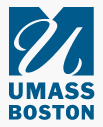Home > CIEE > Vol. 4 > Iss. 1 (2017-2018)
Abstract
In this paper, we draw from our experience as designers, instructors, and researchers in the second edition of a Massive Open Online Course (MOOCs) called Creativity, Innovation, and Change (CIC) 2.0 to discuss MOOC interactions. Since the CIC 2.0 MOOC was inspired by the tenets of connectivism, we employed connectivism and its four main conceptual components (autonomy, diversity, openness, and connectedness) to discuss these empirical findings from a theoretical perspective. We build our argument on the four levels of interactions (interactions with instructors, learners, course materials, and the interface) traditionally used in the field of distance education and online learning and look at the clashes between the original concepts of connectivism and cMOOCs on one hand and traditional educational concepts, particularly interactions and group work, on the other. This study discusses how MOOC interactions reveal that the four components of connectivism are more complex than originally conceptualized. This complexity can be summarized as follows: a) learner autonomy is more complex in MOOC reality; students are relatively more autonomous but not as originally conceptualized since the role of teachers remains unchanged when student interactions with course content and assessment are considered; b) diversity and openness are also more complex since peer interaction and open networks do not exhibit dynamics and importance as predicted, especially in certain participation behaviors and in MOOC pathways; and c) also, the four connectivism components are not mutually inclusive, and their interaction is not as predicted.
Keywords
Connectivism, participation, interactions, MOOC, groups in MOOCs
Recommended Citation
Hristova, Adelina G.; Bonafini, Fernanda C.; Jablokow, Kathryn W.; Bayeck, Rebecca Y.; and Park, Eunsung
(2018)
"How MOOC Reality Informs Distance Education, Online Learning, and Connectivism,"
Current Issues in Emerging eLearning: Vol. 4:
Iss.
1, Article 7.
Available at:
https://scholarworks.umb.edu/ciee/vol4/iss1/7
